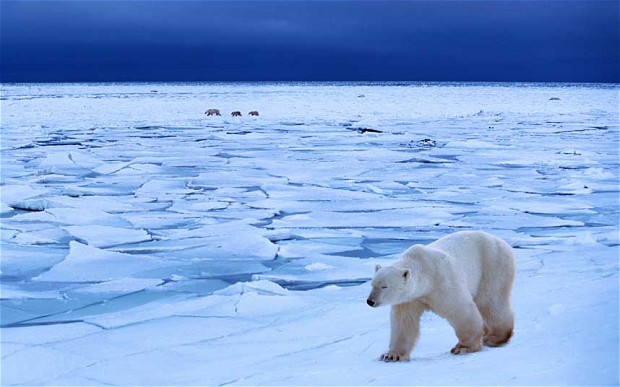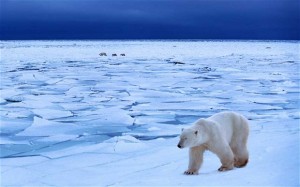The rigid tone, blind appeal to authority and constant use of the terms “denier” and “settled debate” do not reflect true scientific thought or serve the public well.
President Barack Obama recently warned the country about climate change, referencing the recently released National Climate Assessment, mandated by Congress and published every four years as a guide to policymakers. In doing so, he called out skeptics: “Unfortunately, inside of Washington, we’ve still got some climate deniers who shout loud, but they’re wasting everybody’s time on a settled debate. … Climate change is a fact. … Rising sea levels, drought, more wildfires, more severe storms — those are bad for the economy. … Climate change is not some far-off problem in the future. It’s happening now.”
Global warming and its dire consequences may very well come to pass. But with due respect to the president, his experts and everyone complaining about wasted time: The rigid tone, blind appeal to authority and constant use of the terms “denier” and “settled debate” do not reflect true scientific thought or serve the public well.
Science is about explaining nature. The scientist’s role is not to tell the public what to believe. It is to clarify ideas, as efficiently as possible, so the public can understand the questions at hand.
The climate debate isn’t settled; it has hardly begun. The Earth has warmed 1.4 degrees Fahrenheit over the last century. Most of this rise has been in the last 50 years, coincident with higher atmospheric carbon dioxide levels produced by increased fossil fuel consumption. But future atmospheric warming depends on poorly understood feedback loops, and future warming estimates vary significantly. Climate scientists should explain to the public the strengths and limitations of their methods and data; any scientific journal editor would demand as much. Instead, too many scientists simply seek to silence critics.
Likewise, evidence that the number and severity of tropical storms is correlated with increased atmospheric CO2 is uncertain and requires further study. (A cautionary aside: As Tribune columnist Eric Zorn recently pointed out, graphs alone are capable of creating spurious correlations). By themselves, isolated storms like Hurricane Katrina and Superstorm Sandy are not evidence of climate change. As the saying goes, “The plural of anecdote is not data.” And data by itself is not wisdom.
Regarding the most catastrophic climate change prediction, rising sea levels, if the trend of the last 20 years continues, levels will rise by about a foot in the next century. An unsettling development to be sure, but one that is perhaps manageable over several generations with modern engineering. However, some estimates call for rises of as much as 6.5 feet, a far more disturbing prospect. Does the public understand which data and variables account for this discrepancy? Given the wide variation in estimates, how should society respond? Metaphorically and literally, we don’t even know enough to know whether we are in over our heads.
Blind appeals to authority should be suspect. The brilliant Nobel laureate Richard Feynman, who died before expressing any views on climate change, cautioned, “Authority may be a hint as to what the truth is but is not the source of information. … We must absolutely leave room for doubt, or there is no progress and no learning. There is no learning without having to pose a question. And a question requires doubt.”
Feynman illustrated his point about obeisance to authority with the story of an ancient Greek scholar who taught the Greek language. Traveling to a neighboring country, he noticed schoolchildren studying Greek. Attending an examination, he asked one student, “What were Socrates’ ideas on the relationship between truth and beauty?” The student could not answer. Then the scholar asked, “What did Socrates explain to Plato in the third ‘Symposium?’ ” The student responded immediately in fluent Greek with everything Socrates said.
Feynman’s point was that the two questions the scholar asked were the same — in the third “Symposium,” Socrates explained to Plato the relationship between truth and beauty. The scholar realized the students learned Greek by learning to pronounce letters, words, then sentences and paragraphs without any idea of their meaning. They had been taught by authority and could recite Socrates’ words verbatim. But it meant nothing to them because the teachers had never translated the sounds into something the students could understand. There are parallels to our current climate dilemma.
As for deniers: That repugnant term comes from the description of the odious societal element that seeks to deny the Holocaust. But the Holocaust is an irrefutable historical fact, easily documentable through personal narratives, archives and even video. Tangible evidence of the Holocaust exists. It is there for anyone who cares to look.
Unlike history, physical science, particularly climate science, is a discipline that is validated differently — through future observation. And the further one ventures into the future, the more uncertain prediction becomes. Tomorrow’s weather is easier to predict than next week’s. There is more error inherent in predicting what the climate will be in 2100 than what it will be in 2050. Someone skeptical of science’s ability to predict climate 100 years hence should never be painted with the same brush as people who deny the existence of a crematorium at Auschwitz. That is arrant nonsense.
Rather than argue their time is being wasted, those claiming the debate is settled would be well-served by a little humility. When addressing deference to authority in science, Albert Einstein, a scientific authority of some renown, humbled himself by saying, “Whoever undertakes to set himself up as judge in the field of truth and knowledge is shipwrecked by the laughter of the gods.”
. . . . . . . . . . . . . . . .
Cory Franklin is an editorial board contributor to the Chicago Tribune op-ed page.

